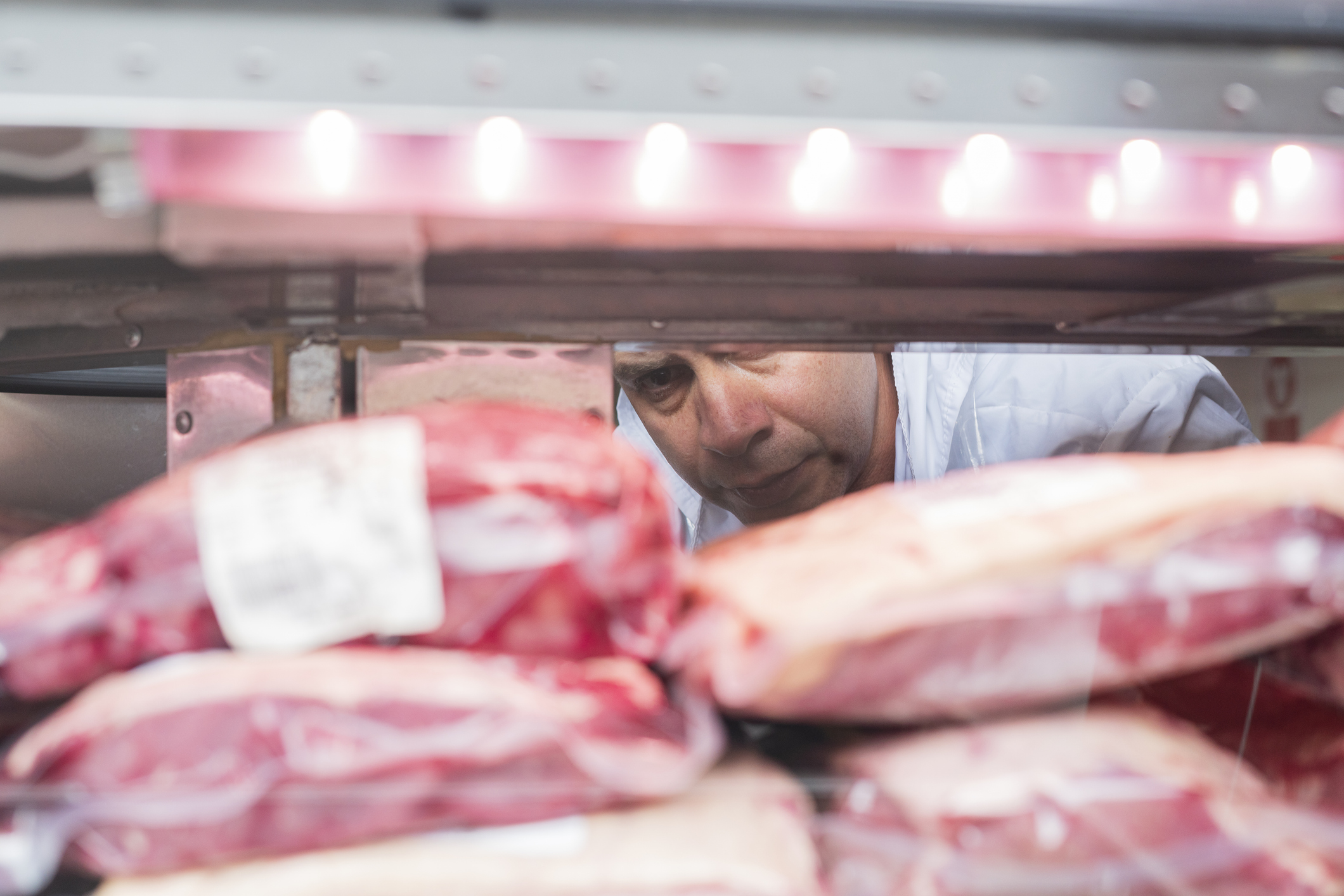Trump Administration Grapples With Meat Monopolies, Rising Beef Prices, Supply Shortages – The HighWire

USDA Secretary Brooke Rollins has brought attention to the monopolization of the meat processing in America, supply shortages, and the rising cost of beef. This comes as President Donald Trump announced plans to quadruple beef imports from Argentina to help reduce costs and create a more competitive market. Beef prices have increased by 15% in the last year.
“The herd size in America, supply and demand, is at its lowest size in 75 years. It’s gotta grow,” Secretary Rollins said. “When you have four major processors, two owned by the Brazilians, you have a major issue when they are processing 85% of the beef in America. We have to decentralize, deregulate, invest in, and incentivize small processors. Instead of processing 800 head a day, they can process 800 head a year. And what you do then, you have more locally produced, healthier food where you’ve got investing in and incentivizing younger and new ranchers.”
The four meat companies referenced by Secretary Rollins are JBS, Tyson Foods, Cargill, and National Beef Packing Company (NBPC). Both JBS and NBPC are Brazilian-owned, and JBS is the world’s largest meat processor.
The move to increase Argentinian beef imports has drawn criticism from ranchers and others who say it contradicts President Trump’s America First agenda. Tariffs and supply shortages are both contributing to the increased cost of beef. Supply shortages are driven by multi-year droughts and higher feed costs, which have led to a historically small US cattle herd. Beef.
Consumer demand for beef has also increased due to the popularity of the carnivore diet for health reasons. The Make America Healthy Again (MAHA) movement emphasizes a move away from seed oils in favor of beef tallow, which Steak N’ Shake embraced following Robert F. Kennedy’s nomination to be the Trump administration’s HHS Secretary.
The Beef Initiative is an organization that has been calling out the monopolized meat supply and has a beef map to connect consumers with local producers without supporting the big four meat producers. They have consistently called for decentralization of the food supply and reduced reliance on the mega corporations that process 85% of American beef.
The Beef Initiative co-founder Cole Bolton said, “ [The] best way to lower beef prices is to enforce antitrust regulations on the four largest beef packers and everyone wins. It all starts with them. Consumers will be happy and ranchers will have healthy margins. But the globalist cabal will not approve.”
Secretary Rollins said in January that, despite her belief in Federalism and the division of powers between different levels of government, she would support the overturning of Proposition 12 in California that placed regulations on producers in the state, as well as producers around the country that wish to sell their products in the state of California. The regulation requires a minimum square footage of 24 sq ft for breeding pigs, 43 sq ft for veal calves, and 1.5 sq ft for egg-laying hens.
Senator Joni Ernst of Iowa asked Rollins about this proposal during the Senate confirmation hearing in January and expressed concerns that the law affects producers from across the country and will only serve to further consolidate the pork market. Rollins has emphasized other efforts to deregulate the industry for small producers to allow them to compete in the free market.
R-Calf USA CEO Bill Bullard said they appreciate the proposed reforms to the cattle industry by Secretary Rollins, including her plan to work with the Department of Justice to enforce antitrust regulations. In 2022, JBS paid a $52 million settlement to resolve claims of beef price-fixing.
“Look, consumer prices have been increasing while cattle prices were decreasing — an inverse relationship,” Bullard said. “This meant the marketplace was exploiting producers on one end and consumers on the other. And then in 2019, we filed an antitrust case against the four largest beef packers, alleging unlawful collusion. After that time is when we saw cattle prices trying to catch up with beef prices, but retail beef prices have increased further, much more, and faster than have cattle prices.”
Bullard supports tariffs against beef imports, but said increased beef imports are not the way to revitalize the American beef industry.
“The proposal we were hearing about increasing imports to the United States is absolutely the wrong direction,” Bullard said. “We need to rebuild the cattle herd, and in order to do that, we have to have a price point that incentivizes rebuilding and expansion. We’re there now. But if actions are taken to reduce the demand for domestic cattle, we’ll be right back where we’ve been — and that is a shrinking industry losing hundreds of thousands of cattle producers, continuing to shrink our domestic cattle herd. This is not what we need to do.”
The HighWire has reported on child trafficking and exploitation at US slaughterhouses, including reports by The Wall Street Journal and The New York Times. A report in May detailed multiple instances of child labor, price fixing, worker abuse, animal abuse, wage theft, pollution, bribery, and sexual harassment at Tyson Foods and its affiliated plants.
Alabama farmer Dustin Kittle talked to The HighWire last year about a Farm Credit scandal in which he was nearly foreclosed upon despite missing no payments. Kittle described a system that exploits small farmers and indebts them to a system that destroys family farms for the benefit of large producers like Tyson.
“Farm credit has been used to fund entities like Tyson Foods,” Kittle said. “It creates a relationship with them so they can continue to grow. As those corporations grow, the dichotomy you see is that our government is funding what is effectively the destruction of the small family farm.”
Recent Top Stories
Sorry, we couldn't find any posts. Please try a different search.











